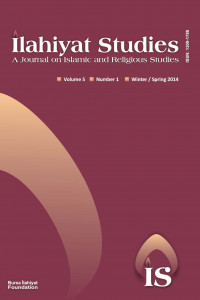Abstract
Abstract
According to an early report attributed to Zayd ibn Thābit, Muḥammad once asked him, “‘Do you know Syriac well? Some books have come to my attention.’ I said, ‘No.’ He said, ‘Learn it.’ So I learned it in nineteen days’.” There is nothing implausible about the veracity of this report; Syriac was a widely spoken language among the Christians who lived on the Arabian periphery in the first third of the seventh century CE. What is more, on the evidence of the Qurʾān itself a good case can be made that contemporary Arabic-speaking Christians professed their faith in an idiom that often reveals its Syriac affinities. It is also plausible that the Prophet would have been interested in the contents of any Syriac books that could easily have come to his attention and that he would have turned to Zayd for help in learning about their contents. After all, as scholars both Muslim and non-Muslim have long pointed out, some seventy percent of the so-called ‘foreign words’ in Qurʾānic Arabic are Syriac in their etymologies, indicating that much of what the Qurʾān says especially about Christian beliefs and practices, and much of its recollection of biblical passages as well, unsurprisingly betrays a Syriac connection.
Details
| Primary Language | English |
|---|---|
| Subjects | Religious Studies |
| Journal Section | Book Reviews |
| Authors | |
| Publication Date | January 29, 2015 |
| Submission Date | June 1, 2013 |
| Published in Issue | Year 2014 Volume: 5 Issue: 1 |

